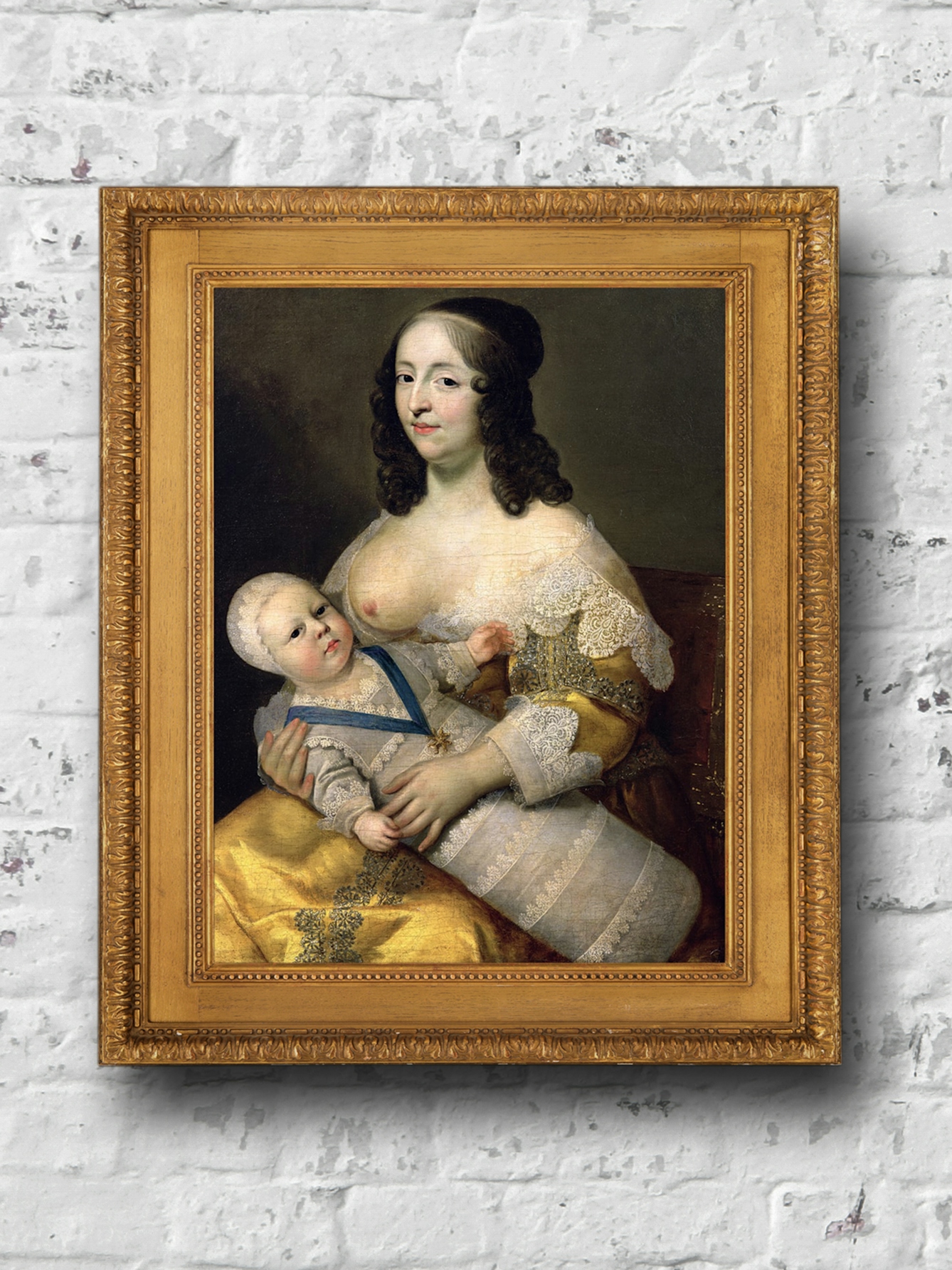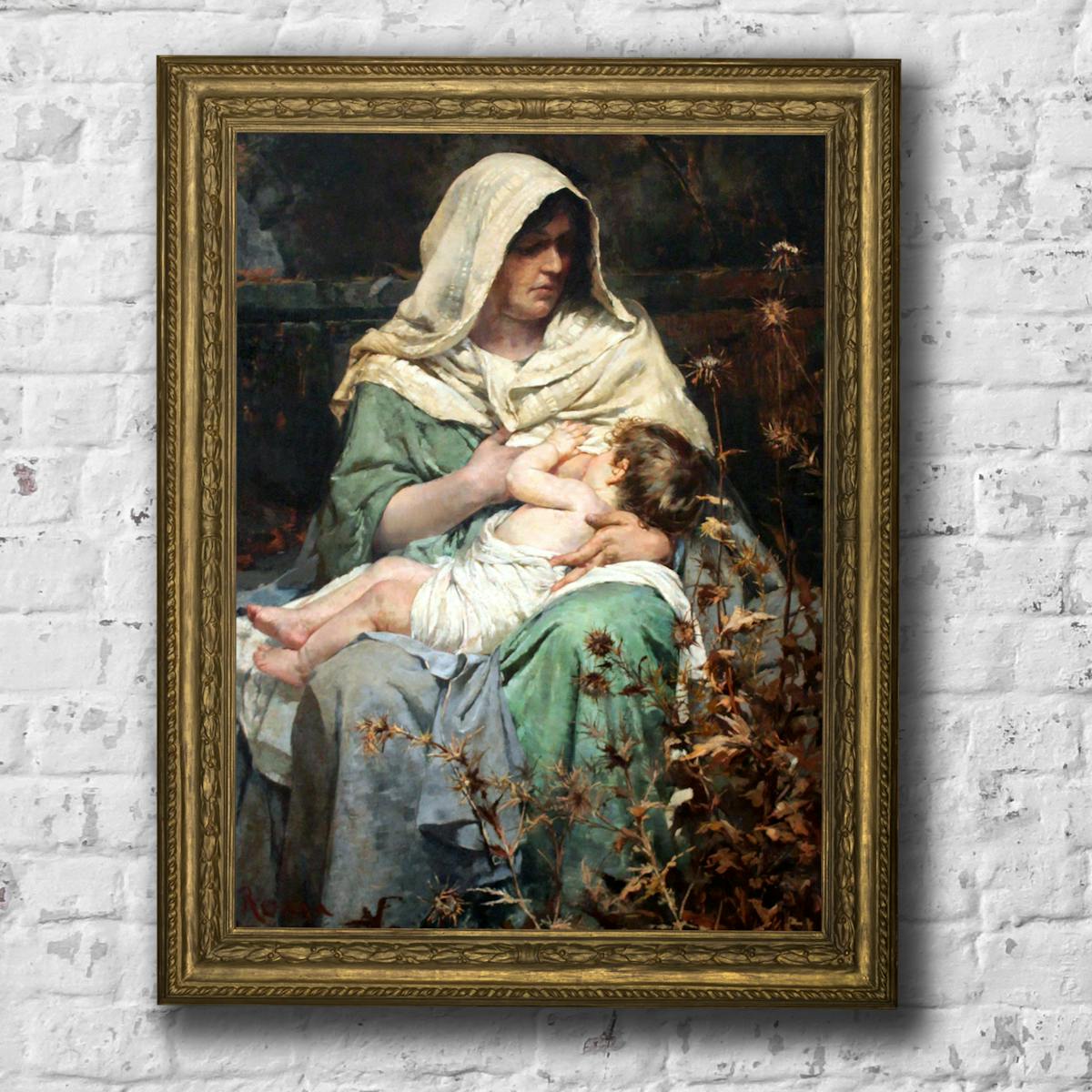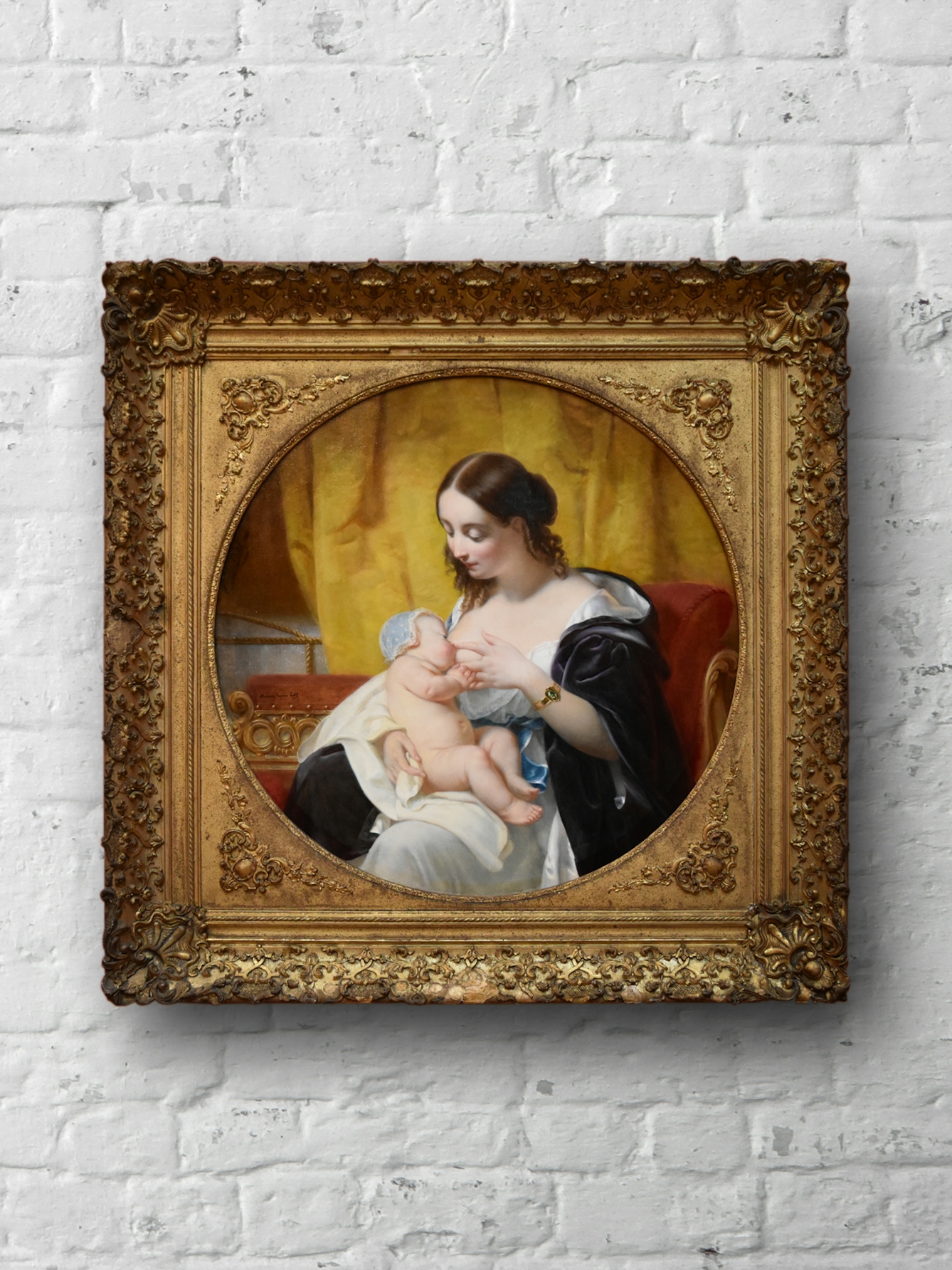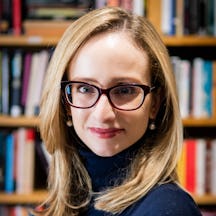While breastfeeding for more than a few months is unusual in the UK, extended nursing has a solid historical and cultural precedent. Julia Martins, who was brought up in a country where longer breastfeeding is widespread, explores history along with her own expectations, the reality of nursing her child, and the sisterhood of women who breastfeed.
My daughter is three years old and I’m still breastfeeding her. If that shocks you, you’re not alone: I’m quite surprised, too.
In the UK, only 1 per cent of babies are exclusively breastfed by the time they are six months old, as recommended by the World Health Organization. Even fewer infants are breastfed by their first birthday; extended breastfeeding – nursing beyond that age – is rarer still, despite the many benefits for both children and parents. No wonder I get a few side glances when I’m out and about, breastfeeding my toddler in public!
In fairness, many of these come from older women, who often smile kindly at me – they probably remember how tricky breastfeeding can be. Still, many people feel shamed for continuing to breastfeed beyond the expected age.
Yet I always knew that, if I had a baby, I would breastfeed them. As a child, I saw babies nursing everywhere: in the park, at the shopping mall, at weddings and family gatherings. No one batted an eyelid, it seemed.
I was raised in Brazil, where 60 per cent of babies are still exclusively breastfed by four months old (the usual duration of maternity leave). Everyone I knew, from my aunties to my mum’s friends and my teachers in school, seemed to breastfeed their children for at least a year. Extended breastfeeding is not unusual and is a growing trend in Brazil, with recent studies highlighting its benefits.
Breastfeeding between two cultures
However, as an immigrant living in the UK, having a child was probably one of the situations where I felt the cultural shock most deeply. You see, another aspect of having children in Brazil is how medicalised childbirth is. Brazil has one of the highest rates of Caesarean sections in the world (56 per cent), and the number is particularly high in the private sector (84 per cent).
“As a child, I saw babies nursing everywhere.”
Growing up, I did not personally know anyone who had had a vaginal delivery: people asked jokingly why it was called “normal birth” when our ‘normal’ was a Caesarean section. The contrast between medicalised childbirth and the prevalence of the more ‘natural’ breastfeeding after the baby was delivered never struck me as weird, though. Until I moved to the UK.
Here, I was introduced to the world of “natural birth”, doulas, midwives, and NCT classes. As with breastfeeding, I do not believe any birth method to be intrinsically superior to the other: each person’s case is different, and each family should choose what works best for them.
Still, I was struck by the fact that in a country where there is so much talk about doing things ‘naturally’, people did not breastfeed as much as in Brazil, where birth is such a medicalised experience. I know I’m generalising and oversimplifying things, but I felt like I had gone through the looking glass, and having children in Hertfordshire was the opposite of what I would have experienced in Porto Alegre.
The historic sisterhood of breastfeeding
To complicate things further, I had my baby while I was working on my PhD, in which I was researching sex and reproduction in the 16th and 17th centuries, breastfeeding included. I came across “extended breastfeeding” in the Elizabethan period, confronted the role of wet-nurses and the idea of motherhood, and studied the uses of breastmilk as a remedy for all kinds of ailments.
During my pregnancy and early motherhood, early modern midwives like Jane Sharp kept me company. In ‘The Midwives Book’ of 1671, Sharp wrote that babies should feed as often as and much as they liked in their first months (what we call “on demand” feeding today).
She recommended that the person nursing wait until infants are between 16 and 20 months old to start weaning, which should be done gradually. Significantly, Sharp argued that children have unique constitutions, and so should be weaned at different ages.
Between reading these historical sources and talking to my Brazilian friends, many of whom nursed for much longer than a year, I felt validated as a new(ish) mother, but I also started to feel part of a sisterhood, which I wasn’t expecting. When I see other people breastfeeding in public, we often glance at each other, smiling in recognition.

“I had my baby while I was working on my PhD, in which I was researching sex and reproduction in the 16th and 17th centuries, breastfeeding included.”
Still, I know that they are asked the same things I am: until when are you going to breastfeed? Don’t you think your child is ready to be weaned? Aren’t you tired? (Yes, I am, always. I’m a mum!) But the truth is, I don’t have the answer to the first two questions.
Embracing the unknown
In my case, breastfeeding was not an easy journey. It was painful and I struggled a lot in the first weeks, or even months – my maternal memory is apt to deceive me. Plus we had to deal with tongue-tie, which was not fun. Eventually, though, things calmed down, and my daughter and I found our rhythm and our balance.
I know that each person’s experience is unique, and I believe that breastfeeding, extended or not, is not for everyone: many people can’t or choose not to breastfeed. Many others nurse for shorter periods or combine breastfeeding with formula feeding. For many going back to work, combining a work life with breastfeeding is possible, but it is a challenge.
And that’s OK: all parents are deserving of respect and acceptance and should be supported in the best way possible with their choices. Motherhood is difficult enough without all the unnecessary pressure that comes from others.
I don’t know until when I will breastfeed, and I’m happy not knowing. I often can’t believe that I’m still doing this, yet I’m also conscious that one of these days (tomorrow, who knows?) will be the last day that I nurse my daughter. As a feminist, motherhood has taught me much, not least of all that people must be able to make their own choices about their bodies, including whether to breastfeed or not. This is why campaigns for destigmatising breastfeeding are so vital.
Researching early modern midwives, wet-nurses and mothers feels comforting to me: I know that the sisterhood I am now part of has a long history. Talking to British and Brazilian friends makes me appreciate how our differences are overshadowed by the fact that we are all just trying to do our best, for ourselves and our children.
As for the people who might give me the side-eye or ask me the same questions over and over, what can I say? I’m just as surprised as you are.
About the author
Julia Martins
- juliamartins.co.uk
- @juliamartinshistory on TikTok
- @juliamartinshistory on Instagram
- @Julia_GMartins on Twitter
Dr Julia Martins is a historian of gender and medicine, researching the ways in which the body was conceptualised in the past and how this shaped how we understand it today. She is a member of the Editorial Collective Feminist Perspectives and an activism outreach supporter with The Vavengers, with whom she hosts My Body My Book Club, an online book club discussing bodily autonomy through literature.


